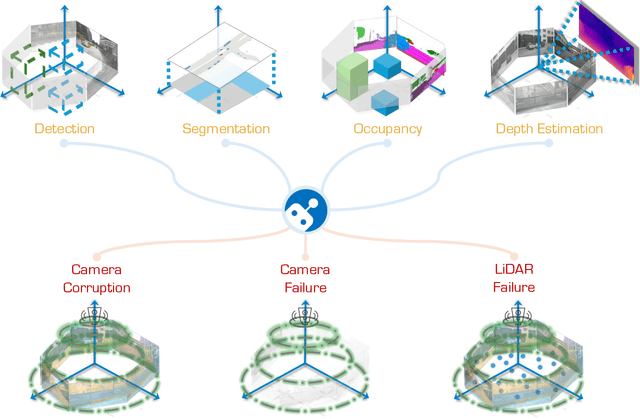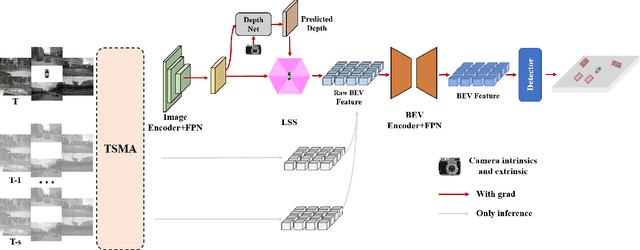Hongming Wang
GRAPH-GRPO-LEX: Contract Graph Modeling and Reinforcement Learning with Group Relative Policy Optimization
Nov 10, 2025Abstract:Contracts are complex documents featuring detailed formal structures, explicit and implicit dependencies and rich semantic content. Given these document properties, contract drafting and manual examination of contracts have proven to be both arduous and susceptible to errors. This work aims to simplify and automate the task of contract review and analysis using a novel framework for transforming legal contracts into structured semantic graphs, enabling computational analysis and data-driven insights. We introduce a detailed ontology mapping core legal contract elements to their graph-theoretic equivalents of nodes and edges. We then present a reinforcement learning based Large Language Model (LLM) framework for segmentation and extraction of entities and relationships from contracts. Our method, GRAPH-GRPO-LEX, incorporates both LLMs and reinforcement learning with group relative policy optimization (GRPO). By applying a carefully drafted reward function of graph metrics, we demonstrate the ability to automatically identify direct relationships between clauses, and even uncover hidden dependencies. Our introduction of the gated GRPO approach shows a strong learning signal and can move contract analysis from a linear, manual reading process to an easily visualized graph. This allows for a more dynamic analysis, including building the groundwork for contract linting similar to what is now practiced in software engineering.
MONICA: Real-Time Monitoring and Calibration of Chain-of-Thought Sycophancy in Large Reasoning Models
Nov 09, 2025Abstract:Large Reasoning Models (LRMs) suffer from sycophantic behavior, where models tend to agree with users' incorrect beliefs and follow misinformation rather than maintain independent reasoning. This behavior undermines model reliability and poses societal risks. Mitigating LRM sycophancy requires monitoring how this sycophancy emerges during the reasoning trajectory; however, current methods mainly focus on judging based on final answers and correcting them, without understanding how sycophancy develops during reasoning processes. To address this limitation, we propose MONICA, a novel Monitor-guided Calibration framework that monitors and mitigates sycophancy during model inference at the level of reasoning steps, without requiring the model to finish generating its complete answer. MONICA integrates a sycophantic monitor that provides real-time monitoring of sycophantic drift scores during response generation with a calibrator that dynamically suppresses sycophantic behavior when scores exceed predefined thresholds. Extensive experiments across 12 datasets and 3 LRMs demonstrate that our method effectively reduces sycophantic behavior in both intermediate reasoning steps and final answers, yielding robust performance improvements.
BrainSegDMlF: A Dynamic Fusion-enhanced SAM for Brain Lesion Segmentation
May 09, 2025Abstract:The segmentation of substantial brain lesions is a significant and challenging task in the field of medical image segmentation. Substantial brain lesions in brain imaging exhibit high heterogeneity, with indistinct boundaries between lesion regions and normal brain tissue. Small lesions in single slices are difficult to identify, making the accurate and reproducible segmentation of abnormal regions, as well as their feature description, highly complex. Existing methods have the following limitations: 1) They rely solely on single-modal information for learning, neglecting the multi-modal information commonly used in diagnosis. This hampers the ability to comprehensively acquire brain lesion information from multiple perspectives and prevents the effective integration and utilization of multi-modal data inputs, thereby limiting a holistic understanding of lesions. 2) They are constrained by the amount of data available, leading to low sensitivity to small lesions and difficulty in detecting subtle pathological changes. 3) Current SAM-based models rely on external prompts, which cannot achieve automatic segmentation and, to some extent, affect diagnostic efficiency.To address these issues, we have developed a large-scale fully automated segmentation model specifically designed for brain lesion segmentation, named BrainSegDMLF. This model has the following features: 1) Dynamic Modal Interactive Fusion (DMIF) module that processes and integrates multi-modal data during the encoding process, providing the SAM encoder with more comprehensive modal information. 2) Layer-by-Layer Upsampling Decoder, enabling the model to extract rich low-level and high-level features even with limited data, thereby detecting the presence of small lesions. 3) Automatic segmentation masks, allowing the model to generate lesion masks automatically without requiring manual prompts.
Interpretable Multimodal Learning for Tumor Protein-Metal Binding: Progress, Challenges, and Perspectives
Apr 04, 2025Abstract:In cancer therapeutics, protein-metal binding mechanisms critically govern drug pharmacokinetics and targeting efficacy, thereby fundamentally shaping the rational design of anticancer metallodrugs. While conventional laboratory methods used to study such mechanisms are often costly, low throughput, and limited in capturing dynamic biological processes, machine learning (ML) has emerged as a promising alternative. Despite increasing efforts to develop protein-metal binding datasets and ML algorithms, the application of ML in tumor protein-metal binding remains limited. Key challenges include a shortage of high-quality, tumor-specific datasets, insufficient consideration of multiple data modalities, and the complexity of interpreting results due to the ''black box'' nature of complex ML models. This paper summarizes recent progress and ongoing challenges in using ML to predict tumor protein-metal binding, focusing on data, modeling, and interpretability. We present multimodal protein-metal binding datasets and outline strategies for acquiring, curating, and preprocessing them for training ML models. Moreover, we explore the complementary value provided by different data modalities and examine methods for their integration. We also review approaches for improving model interpretability to support more trustworthy decisions in cancer research. Finally, we offer our perspective on research opportunities and propose strategies to address the scarcity of tumor protein data and the limited number of predictive models for tumor protein-metal binding. We also highlight two promising directions for effective metal-based drug design: integrating protein-protein interaction data to provide structural insights into metal-binding events and predicting structural changes in tumor proteins after metal binding.
The RoboDrive Challenge: Drive Anytime Anywhere in Any Condition
May 14, 2024



Abstract:In the realm of autonomous driving, robust perception under out-of-distribution conditions is paramount for the safe deployment of vehicles. Challenges such as adverse weather, sensor malfunctions, and environmental unpredictability can severely impact the performance of autonomous systems. The 2024 RoboDrive Challenge was crafted to propel the development of driving perception technologies that can withstand and adapt to these real-world variabilities. Focusing on four pivotal tasks -- BEV detection, map segmentation, semantic occupancy prediction, and multi-view depth estimation -- the competition laid down a gauntlet to innovate and enhance system resilience against typical and atypical disturbances. This year's challenge consisted of five distinct tracks and attracted 140 registered teams from 93 institutes across 11 countries, resulting in nearly one thousand submissions evaluated through our servers. The competition culminated in 15 top-performing solutions, which introduced a range of innovative approaches including advanced data augmentation, multi-sensor fusion, self-supervised learning for error correction, and new algorithmic strategies to enhance sensor robustness. These contributions significantly advanced the state of the art, particularly in handling sensor inconsistencies and environmental variability. Participants, through collaborative efforts, pushed the boundaries of current technologies, showcasing their potential in real-world scenarios. Extensive evaluations and analyses provided insights into the effectiveness of these solutions, highlighting key trends and successful strategies for improving the resilience of driving perception systems. This challenge has set a new benchmark in the field, providing a rich repository of techniques expected to guide future research in this field.
DroidBot-GPT: GPT-powered UI Automation for Android
Apr 14, 2023Abstract:This paper introduces DroidBot-GPT, a tool that utilizes GPT-like large language models (LLMs) to automate the interactions with Android mobile applications. Given a natural language description of a desired task, DroidBot-GPT can automatically generate and execute actions that navigate the app to complete the task. It works by translating the app GUI state information and the available actions on the smartphone screen to natural language prompts and asking the LLM to make a choice of actions. Since the LLM is typically trained on a large amount of data including the how-to manuals of diverse software applications, it has the ability to make reasonable choices of actions based on the provided information. We evaluate DroidBot-GPT with a self-created dataset that contains 33 tasks collected from 17 Android applications spanning 10 categories. It can successfully complete 39.39% of the tasks, and the average partial completion progress is about 66.76%. Given the fact that our method is fully unsupervised (no modification required from both the app and the LLM), we believe there is great potential to enhance automation performance with better app development paradigms and/or custom model training.
 Add to Chrome
Add to Chrome Add to Firefox
Add to Firefox Add to Edge
Add to Edge